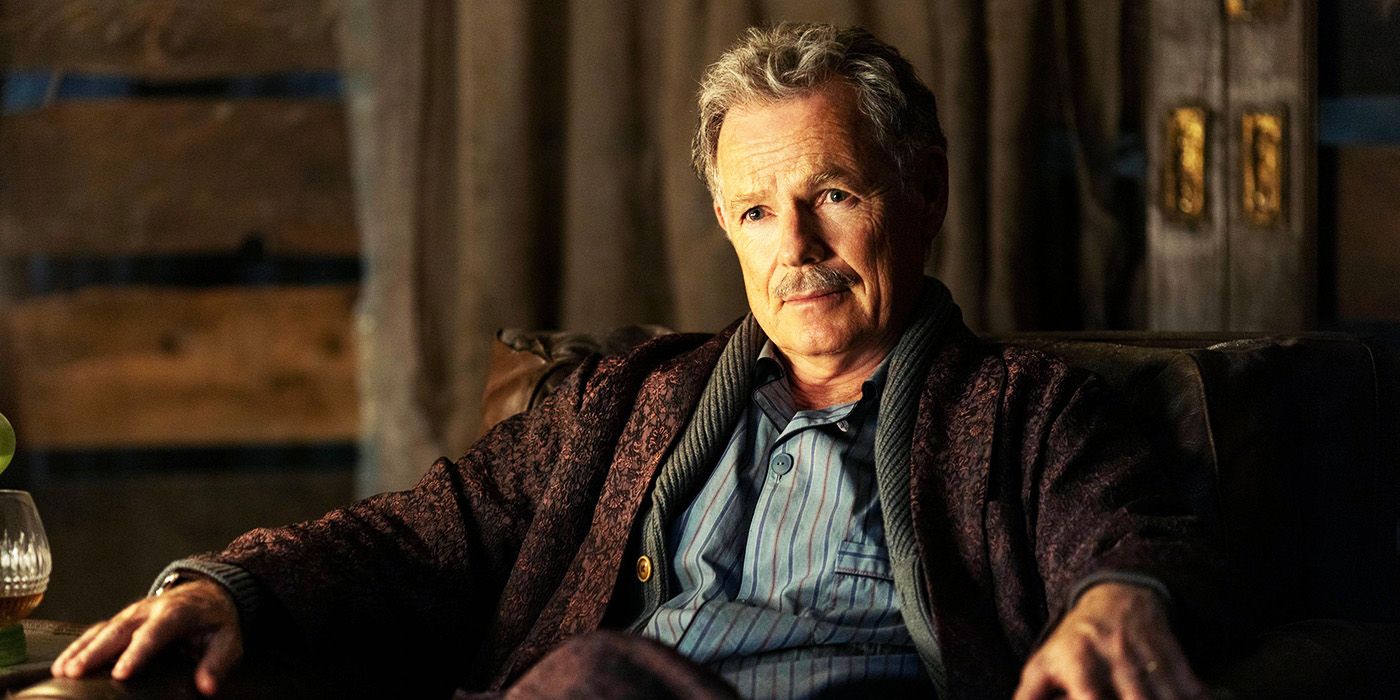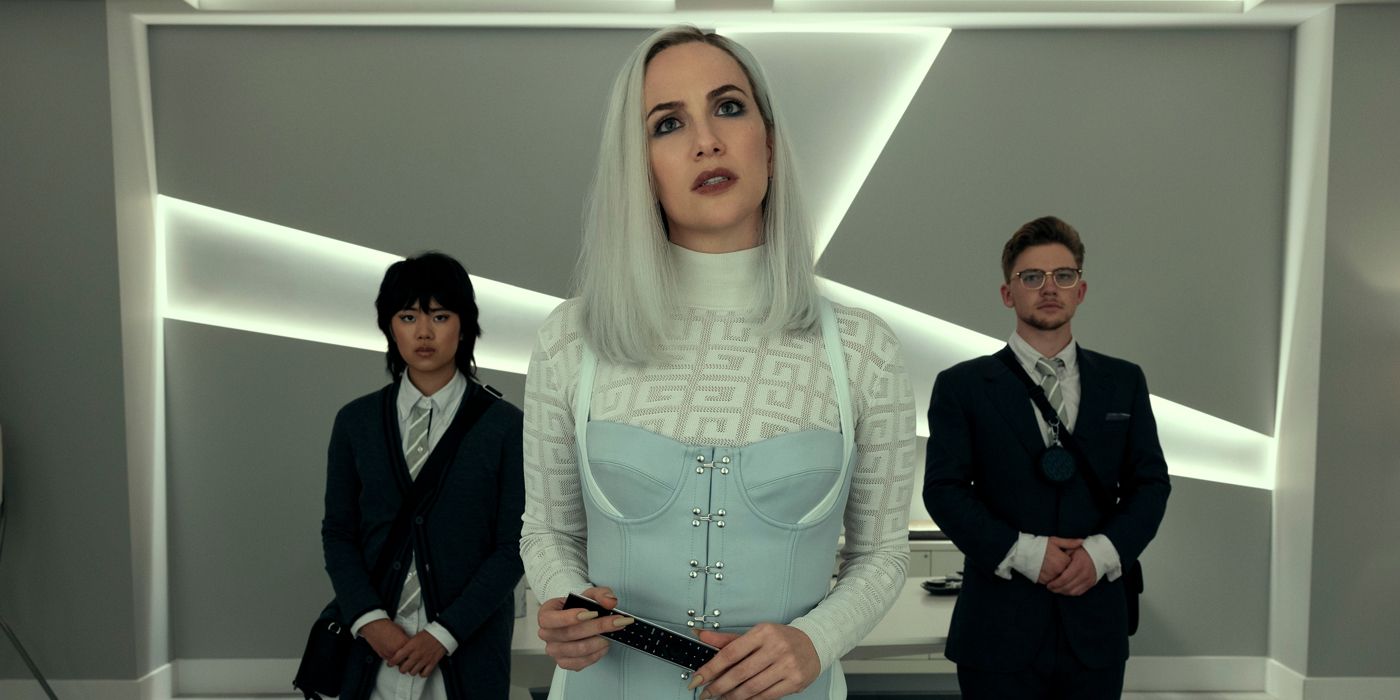The Fall of the House of Usher Summary, Characters, Themes, & Facts
Table Of Content

He witnesses Madeline's reemergence and the subsequent, simultaneous death of the twins. The narrator is the only character to escape the House of Usher, which he views as it cracks and sinks into the mountain lake. Fearing that her body will be exhumed for medical study, Roderick insists that she be entombed for two weeks in the family tomb located in the house before being permanently buried. The narrator helps Roderick put Madeline's body in the tomb, whereupon the narrator realizes that Madeline and Roderick are twins.
The Fall of the House of Usher review – a gleefully terrifying take on Edgar Allan Poe
'The Fall of the House of Usher': All the Buried Edgar Allan Poe References - Vanity Fair
'The Fall of the House of Usher': All the Buried Edgar Allan Poe References.
Posted: Thu, 12 Oct 2023 07:00:00 GMT [source]
I say that even their exceeding density did not prevent our perceiving this — yet we had no glimpse of the moon or stars — nor was there any flashing forth of the lightning. But the under surfaces of the huge masses of agitated vapor, as well as all terrestrial objects immediately around us, were glowing in the unnatural light of a faintly luminous and distinctly visible gaseous exhalation which hung about and enshrouded the mansion. At the request of Usher, I personally aided him in the arrangements for the temporary entombment. The body having been encoffined, we two alone bore it to its rest. It had been used, apparently, in remote feudal times, for the worst purposes of a donjon-keep, and, in later days, as a place of deposit for powder, or some other highly combustible substance, as a portion of its floor, and the whole interior of a long archway through which we reached it, were carefully sheathed with copper. Its immense weight caused an unusually sharp grating sound, as it moved upon its hinges.
A Summary and Analysis of Edgar Allan Poe’s ‘The Fall of the House of Usher’
Since from the beginning of the story, the readers see that there is something wrong with the house, and certainly, the fissure/crack splits the house and destroys it. Some scholars and critics argue that the character of Madeline does not exist at all. They have reduced her to the shared figment of the imagination of the narrator and Roderick.
Character descriptions
The pallor of his countenance had assumed, if possible, a more ghastly hue—but the luminousness of his eye had utterly gone out. There were times, indeed, when I thought his unceasingly agitated mind was labouring with some oppressive secret, to divulge which he struggled for the necessary courage. It was no wonder that his condition terrified—that it infected me. During the whole of a dull, dark, and soundless day in the autumn of the year, when the clouds hung oppressively low in the heavens, I had been passing alone, on horseback, through a singularly dreary tract of country; and at length found myself, as the shades of the evening drew on, within view of the melancholy House of Usher.
Fear
The narrator tells Roderick that the gas is a natural phenomenon, not altogether uncommon. ‘The Fall of the House of Usher’ is an 1839 short story by Edgar Allan Poe ( ), a pioneer of the short story and a writer who arguably unleashed the full psychological potential of the Gothic horror genre. The story concerns the narrator’s visit to a strange mansion owned by his childhood friend, who is behaving increasingly oddly as he and his twin sister dwell within the ‘melancholy’ atmosphere of the house. The setting of the novel is several dark and stormy nights and the haunted mansion. Any particular geographic location of the story or the time of occurrence is completely unknown to the readers.
As Roderick finishes his story, an eyeless and bloodied Madeline suddenly bursts out of the basement and attacks Roderick as the house begins to crumble around them. In a final burst of strength, Madeline strangles Roderick to death as Auggie flees collapsing home—a sequence that mirrors the ending of Poe's "House of Usher." ‘The Fall of the House of Usher’ can also be analysed as a deeply telling autobiographical portrait, in which Roderick Usher represents, or reflects, Poe himself. After all, Roderick Usher is a poet and artist, well-read (witness the assortment of books which he and the narrator read together), sensitive and indeed overly sensitive (to every sound, taste, sight, touch, and so on). Many critics have interpreted the story as, in part, an autobiographical portrait of Poe himself, although we should be wary, perhaps, of speculating too much about any parallels.

The narrator tells the readers the term “The House of Usher” does not only refer to the house but also the family dwelling in the house and the Usher bloodline. The title of the story “The Fall of the House of Usher” can be interpreted in various ways. The first interpretation can be of the actual fall of the house of Usher. The House of Usher is the place or mansion that the narrator visits and the main action of the story occur. The house of Usher falls at the end of the story into the pool of water situated before the house. The small crack that the narrator sees when he enters the house foreshadows the fall of the house.
Its main character, William Stendahl, builds a house based on the specifications from Poe's story to murder his enemies. A storm begins, and Roderick comes to the narrator's bedroom (which is situated directly above the house's vault) in an almost hysterical state. Throwing the windows open to the storm, Roderick points out that the lake surrounding the house seems to glow in the dark, just as Roderick depicted in his paintings, but there is no lightning or other explainable source of the glow. To secure their fortune — and future — two ruthless siblings build a family dynasty that begins to crumble when their heirs mysteriously die, one by one. After an episodes-long arc where the younger Roderick, Annabel Lee, and Madeline plotted to work with Dupin to bury Fortunato (where an ambitious Roderick worked in the mailroom) and its asshole CEO Rufus Griswold (Michael Trucco) for forged signatures and other misgivings, Roderick turned on Dupin. While under testimony, he went against what he said he would do, saying instead that Dupin was harassing him, that Fortunato did no wrong, and this his signatures were never forged.
He offers to lay out the truth about his family’s criminal, violent history. All of these nightmarish visions are attached to the family drama that Usher offers up for Dupin, giving the season a clever episodic structure in that each chapter intertwines a different Poe source into the overall saga of the Ushers. The story features numerous allusions to other works of literature, including the poems “The Haunted Palace” and “Mad Trist” by Sir Launcelot Canning. Poe composed them himself and then fictitiously attributed them to other sources. Both poems parallel and thus predict the plot line of “The Fall of the House of Usher.” “Mad Trist,” which is about the forceful entrance of Ethelred into the dwelling of a hermit, mirrors the simultaneous escape of Madeline from her tomb.
Long considered Edgar Allan Poe‘s masterpiece, “The Fall of the House of Usher” continues to intrigue new generations of readers. The story has a tantalizingly horrific appeal, and since its publication in Burton’s Gentleman’s Magazine, scholars, critics, and general readers continue to grapple with the myriad possible reasons for the story’s hold on the human psyche. These explanations range from the pre-Freudian to the pre–Waste Land and pre-Kafka-cum-nihilist to the biographical and the cultural. Indeed, despite Poe’s distaste for Allegory, some critics view the house as a Metaphor for the human psyche (Strandberg 705). Whatever conclusion a reader reaches, none finds the story an easy one to forget.
This friend is riding to the house, having been summoned by Roderick Usher, having complained in his letter that he is suffering from some illness and expressing a hope that seeing his old friend will lift his spirits. The first two episodes of The Fall of the House of Usher premiered at Fantastic Fest in September 2023 before the Netflix release the following month, being viewed more than 13 million times in its first two weeks. It was met with positive reviews, with critics praising its production values, directing, and performances (in particular from Gugino, Greenwood and Mark Hamill), although they were divided on its narrative, notably in relation to the source materials.
However, the atmosphere and the mood of the setting are far more important than the time and place of the setting. The first of the many settings of the house, Poe describes the outside of the house as spooky. There is an ominous fissure that runs down the center of the house. The claustrophobia of the house of Usher has a deep influence on the relationship among the characters of the story.
There is a sentient house, an underground tomb, a dead body, and dark and stormy nights. In supernatural gothic, weird, and strange things, happenings can be attributed to the supernatural happening. The short story, “The Fall of the House of Usher” is an account of a madman whose sickness is suggestive because of the sickness in the family line.
She's first present tending bar when Roderick and Madeline stop in on New Year's Eve 1979, and we don't know what's going on with them, but we know they're nervous about something. Throughout the rest of the series, Verna continues to show up—more than 40 years later, always looking exactly the same as the day she met them. She shapeshifts, and knows everything, always letting the Usher children know exactly what the universe needs them to know before their time is up. Even before the final episode of The Fall of the House of Usher, it's abundantly clear that Verna (Carla Gugino) is no mere human being. But Verna (which, if you notice, is an anagram of RAVEN) represents some kind of devil or adjacent otherworldly force, a harbinger of death who exists only to tempt and test the ethics and morality of those who need testing.
She burst above ground, strangling Roderick as a surrounding storm began to take their childhood home down to the ground with them, just as Dupin got out of the house in time. Through the years, the siblings convinced themselves that this simply couldn't have actually been real. They shared a traumatic event at a formative time in life, and had been drinking quite a bit—their meeting with Verna must have been a shared delusion, and for years, they wrote it off as such. And as Roderick Usher got sicker and sicker in real life—his rare form of vascular dementia gave him horrific hallucinations, including Griswold's Jester costume and his various children's dead bodies—his bill came due, and all of his children died in front of him. By doing this, Roderick was briefly arrested for perjury, but earned goodwill with both Griswold and the larger Fortunato community; he was willing to take one for the team. While eventually Roderick could have used this to simply move his way up, he and Madeline had other plans.
The emotions are central to the personality of Roderick Usher, who has been suffering from an unknown disease like many of the characters of Edger Allan Poe. She appears near the narrator, but never acknowledges his presence. The narrator and Roderick place her in a tomb despite her flushed, lively appearance. In the tale's conclusion, Madeline escapes from the tomb and returns to Roderick, scaring him to death.

Comments
Post a Comment